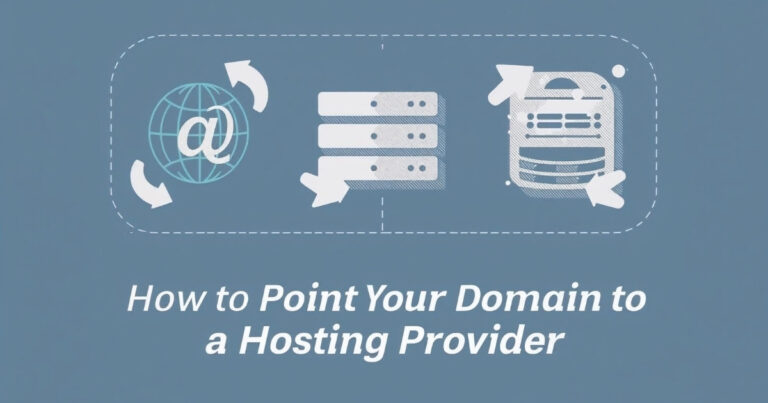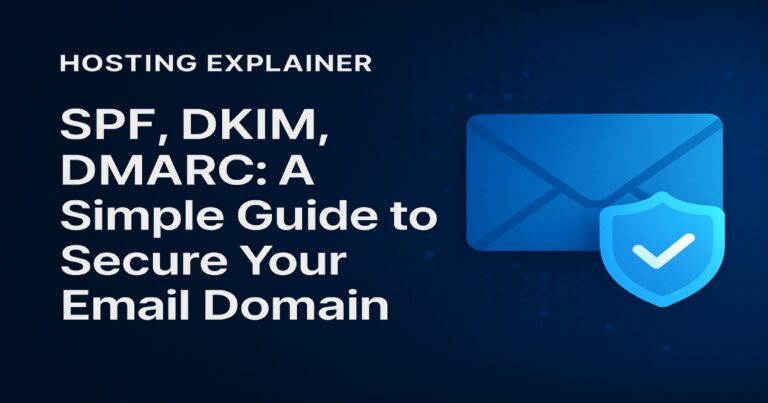How to Choose the Perfect Domain Name for Your Website
When I launched my first website, I picked a domain that I thought sounded clever. But within weeks, I realized it was hard to remember and tough to spell, and even my friends couldn’t recall it.
Your domain name is more than just an address; it’s your online identity. It affects branding, trust, SEO, and even user behavior.
In this guide, I’ll walk you through how to choose the perfect domain name for your website. You’ll learn what makes a name memorable, which mistakes to avoid, and practical steps to secure the right one.
By the end, you’ll have a clear strategy for picking a domain that works for both your audience and search engines.
Why Your Domain Name Matters More Than You Think
A domain name is your first impression online. It tells visitors who you are and what your website is about. A strong domain builds credibility, makes your brand memorable, and can even influence SEO.
For example, think of a site like Amazon.com or Homewardio.com. Short, easy to spell, and brandable. Compare that to a long, confusing domain like BestOnlineBookstoreForCheapBooks.com; it might describe the business, but it’s hard to remember and looks spammy.

Your domain sets the tone for your brand. People are more likely to trust and return to a site with a professional, easy-to-remember name. Even small details like a simple extension or avoiding numbers can make a big difference.
Key Principles of Choosing the Perfect Domain Name
Choosing a domain isn’t just about creativity. There are clear principles that make a domain effective.
1. Keep It Short and Simple
Short domains are easier to type, remember, and share. Aim for 6–15 characters. Long domains increase the chance of typos and confusion.
I once recommended a client shorten their 20-character domain to just 12. Their traffic improved simply because people could recall and type it without mistakes.
Test it by saying it out loud. If it’s hard to pronounce, it’s probably too long. You can also ask someone to type it after hearing it once. If they can’t, it needs simplification.
2. Make It Memorable and Brandable
A great domain sticks in the mind. Think unique, not generic. Brandable domains are easier to market and more likely to be remembered.
I’ve found that combining simple words creatively works well. For example, Shopify combines “shop” with a catchy ending. Another example is BuzzFeed, which is short, catchy, and immediately recognizable.
Avoid overly descriptive names that read like a sentence; they rarely feel professional or memorable. Adding a creative twist to a relevant word can make your domain stand out.
3. Choose the Right Domain Extension
Your domain extension (.com, .net, .org, etc.) matters. .com is still the most trusted and recognizable. But niche extensions like .ai or .io can work if you’re targeting tech audiences.
If your preferred .com is unavailable, consider .co or country-specific extensions, but avoid confusing options that might mislead visitors. Also, think about the perception: a non-.com domain may require extra marketing to build trust.
4. Avoid Hyphens and Numbers
Hyphens and numbers can confuse users and make your domain harder to say aloud. They’re also prone to typos in search engines.
For voice search especially, numbers and hyphens create recognition issues. Stick to letters only whenever possible. Domains like Easy-Books-4U.com are harder to remember than EasyBooks.com.
5. Check Availability and Trademarks
Before committing, check if the domain is available and doesn’t infringe on trademarks. You don’t want legal headaches or a reputation risk down the line.
Use domain registrars and online tools to verify availability. Premium domains may cost more but can save branding issues later. In some cases, buying a slightly premium domain is worth it if it’s short, memorable, and matches your brand.

How Domain Names Affect SEO and User Trust
Keywords in a domain can help SEO, but they’re not as critical as they used to be. Search engines prioritize high-quality content over exact-match domains.
That said, a domain that reflects your brand and is easy to recall improves user behavior, which indirectly helps SEO. People are more likely to click, return, and share.
Balance keywords with brandability. A domain like FitnessPro.com is clear and brandable, while BestFitnessTipsOnline.com is long and generic.
For local businesses, including a location in your domain can help with local SEO, but avoid overstuffing. For instance, BostonBakery.com works, but BestBakeryInBostonCheap.com does not.
Mistakes to Avoid When Choosing a Domain Name
Some common mistakes can hurt your website before it even launches:
- Using a name that’s too long or hard to spell.
- Copying or closely mimicking another brand.
- Choosing trendy words that may feel outdated quickly.
- Thinking only short-term, ignoring future growth.
I’ve seen startups struggle with rebranding simply because their initial domain was limiting. Avoid this by thinking ahead. Also, don’t pick something cute or clever only to realize it’s confusing to your audience.
Practical Steps to Find the Perfect Domain Name
Brainstorm With Your Brand in Mind
Start by listing words related to your niche, mission, and audience. Mix and match them creatively. Write down 20–30 ideas, then narrow it down.
Use a Domain Name Generator (Carefully)
Tools can help spark ideas, but don’t rely solely on them. AI or generator suggestions often produce unnatural or hard-to-remember names. Use them as inspiration, not a final choice.
Test Your Domain Name Before You Buy
Say it out loud, write it down, and share it with friends. Ensure it’s easy to pronounce, spell, and remember. Also, search the name to see if anything negative appears online.
Register Quickly to Secure It
Once you’ve found the right domain, register it immediately. Good names get snapped up fast. Don’t delay. I’ve missed out on domains I loved because I waited too long.
Real-Life Examples of Good vs. Bad Domain Names
- Good: Meduvest.com is short, memorable, and brandable.
- Bad: MyCoolFilesStorageOnline123.com is descriptive but long, confusing, and hard to recall.
- Good: Etsy.com is unique, easy to spell, and brandable.
- Bad: HandmadeCraftsForSaleOnline.com is accurate but too long and generic.
Even small tweaks matter. A hyphen or number can transform a usable domain into a forgettable one. Real-world testing often makes the difference between success and frustration.
FAQs About Choosing a Domain Name
- What makes a domain name good for SEO?
A good domain is memorable, brandable, and simple. Keywords help but aren’t critical.
2. Is it better to use keywords or a brand name?
Brandable names are generally better for long-term recognition. Keywords can help if they’re short and relevant.
3. Should I always choose .com for my website?
Yes, if possible. It’s the most trusted and easiest to remember.
4. How short should a domain name be?
Aim for 6–15 characters. Short names are easier to type, pronounce, and recall.
5. Do hyphens or numbers hurt my domain?
Yes. They increase typos and reduce memorability. Avoid them if possible.
6. How can I check if a domain name is trademarked?
Use the USPTO search or your country’s trademark database. It prevents legal issues.
Choosing Your Domain With Confidence
Choosing the perfect domain name isn’t just a technical step; it’s a foundational branding decision. Keep it short, memorable, brandable, and trustworthy. Avoid hyphens, numbers, and overly descriptive phrases.
Think long-term, test your ideas, and register quickly. Your domain is the front door to your online world. Make it one that visitors remember, trust, and return to. With the right domain, you’re laying the foundation for everything that follows: traffic, engagement, and growth.






